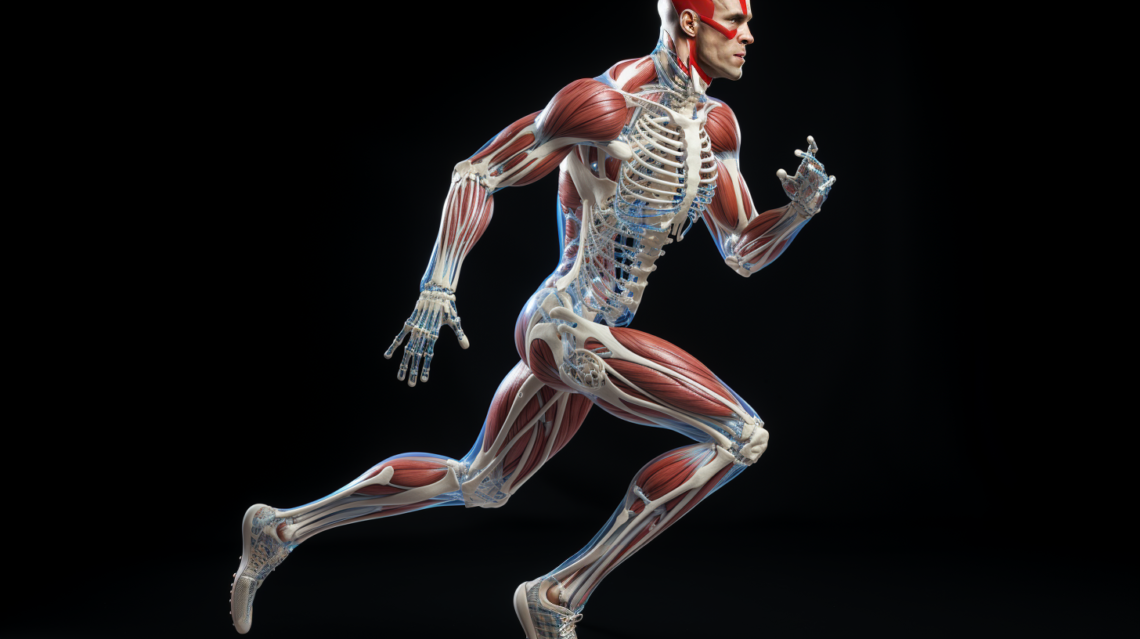
The Science of Movement
Kinesiology, a multifaceted field of study, delves into the science of human movement, offering valuable insights into how our bodies function and interact with their environment. As a healthcare discipline, it extends beyond mere physical education, encompassing various aspects of health, wellness, rehabilitation, and performance enhancement.
At its core, kinesiology is grounded in the study of biomechanics, physiology, anatomy, and psychology. These foundational elements provide a comprehensive understanding of how muscles, bones, and joints work in concert to facilitate movement. Biomechanics, for instance, explores the mechanics of human motion, analyzing how forces impact the body during different activities. Physiological aspects consider the body’s response and adaptations to physical activity, including cardiovascular, respiratory, and muscular changes. Anatomy provides the structural context for these functions, detailing the musculoskeletal system, while psychology delves into the mental and emotional facets of physical activity and how they influence motivation and behavior.
The Role of Kinesiologists in Patient Care
Kinesiologists are professionals with specialized training in this field. Their expertise enables them to develop personalized exercise programs, provide rehabilitation services, and offer guidance on injury prevention and management. They often work with diverse populations, including athletes seeking performance optimization, individuals recovering from injuries, those with chronic illnesses requiring physical conditioning, and elderly patients needing mobility support.
Patients with a range of conditions can benefit from kinesiology-based interventions. For instance, individuals recovering from orthopedic surgeries, such as knee or hip replacements, can find kinesiology instrumental in regaining strength and mobility. Kinesiology also plays a significant role in managing chronic conditions like arthritis, diabetes, and cardiovascular diseases, where exercise is a key component of treatment. Moreover, it offers support to those with neurological disorders, such as stroke survivors or individuals with Parkinson’s disease, by improving motor skills and balance.
Kinesiology and Sports Performance
In the realm of sports, kinesiologists work with athletes to enhance performance and reduce the risk of injury. This involves analyzing athletic movements to optimize efficiency and effectiveness. Strength and conditioning programs tailored to specific sports can help athletes achieve peak physical condition, while biomechanical assessments can pinpoint areas for improvement in technique.
Rehabilitation and Therapeutic Kinesiology
Therapeutic kinesiology is a critical aspect of rehabilitation. This approach uses movement and exercise as tools for recovery and rehabilitation from injuries or surgeries. Kinesiologists develop exercise programs that target specific muscles and joints, helping patients regain strength, flexibility, and range of motion. These programs are often integral parts of multidisciplinary approaches to healthcare, complementing other treatments such as physiotherapy, chiropractic care, and massage therapy.
Kinesiology in Preventive Health and Wellness
Preventive health is another crucial area where kinesiology has a significant impact. Kinesiologists assist in designing exercise and lifestyle programs that aim to prevent or manage chronic diseases, improve overall health, and enhance quality of life. For individuals at risk of conditions like obesity, hypertension, or osteoporosis, tailored exercise programs can be a preventative measure, reducing the likelihood of disease development.
The Evolving Scope of Kinesiology
As research in kinesiology continues to evolve, its applications are becoming increasingly diverse and sophisticated. Advances in technology, such as wearable fitness devices and motion capture systems, are providing new insights into human movement. These developments are not only enhancing athletic performance but also improving rehabilitation techniques and preventive health strategies.
Kinesiology, with its comprehensive approach to understanding and enhancing human movement, plays a vital role in various healthcare contexts. From aiding in recovery and rehabilitation to optimizing athletic performance and contributing to preventive health measures, kinesiology offers a wide range of benefits. As our understanding of human movement continues to grow, so too will the applications and effectiveness of kinesiology in improving health and wellness. This field, embodying a blend of science and practice, is an indispensable part of the healthcare landscape, offering hope and improved quality of life to many. Whether aiding a recovering patient, guiding an athlete, or supporting an elderly individual in maintaining mobility, kinesiology stands as a testament to the power of movement in health and healing.

